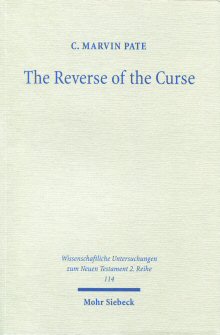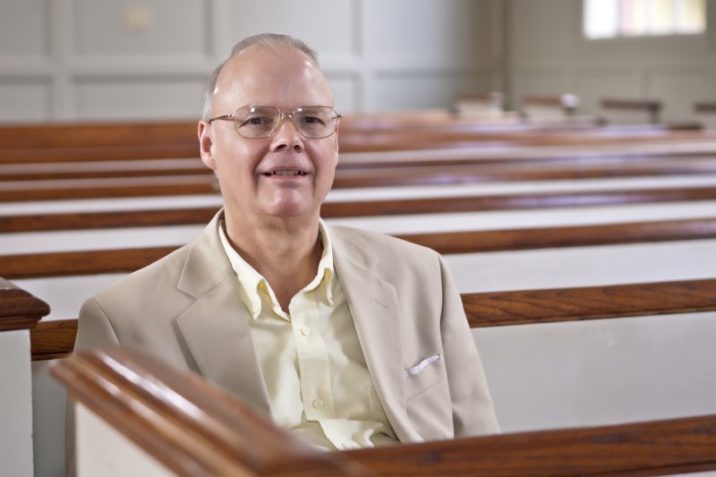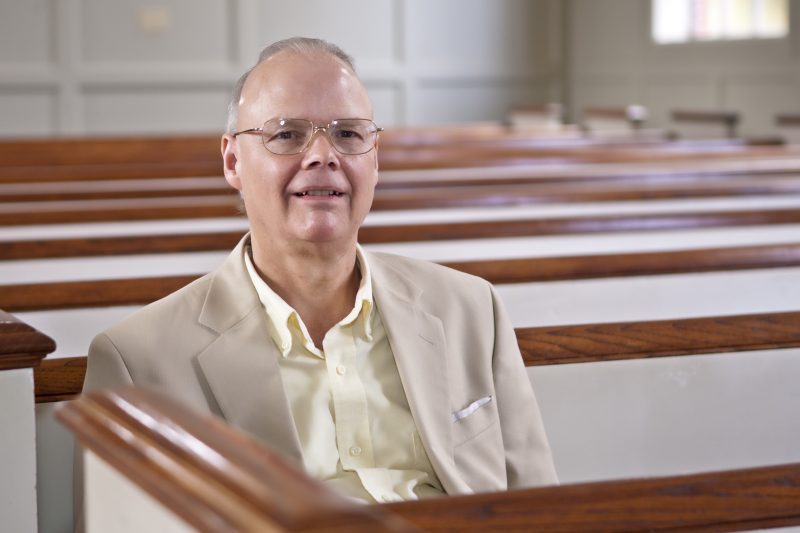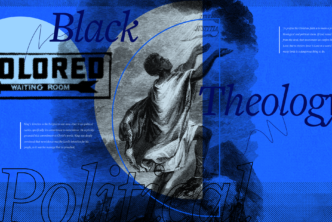The Mohr Siebeck Interviews are a chance to hear from some of the most influential authors in Pauline studies of the past few decades. In this short series, we will be hearing from a number of outstanding scholars, including Marvin Pate, Seyoon Kim, and Jimmy Dunn.
For the first interview, I had the opportunity to correspond with Marvin Pate on his book, The Reverse of the Curse: Paul, Wisdom, and the Law, published originally with Mohr Siebeck in 2000, and part of the 15-volume Mohr Siebeck Perspectives on Paul, Judaism, and the Law, now in pre-publication for the Logos library.
C. Marvin Pate is Elma Cobb Professor of Christian Theology and Chair of the Department of Christian Theology at Ouachita Baptist University.
What led you into biblical studies, and in particular, Pauline studies, in the first place?
There are two reasons that I have pursued biblical studies and Paul in particular. First, there is the practical reason—as a senior in high school, I began to write a commentary on numerous books of the Bible (biblical theology one might say), especially Paul’s letters, as a part of my daily devotions. That practice, plus going to churches that primarily preached on Paul, lit a fire in my heart for the great apostle. Second, I did my undergraduate training at an institution that tended to stress Paul’s letters, especially his message of justification by faith. So it was a natural step to go on and do my dissertation on Paul at the doctoral level. In my first faculty position, I taught all of Paul’s letters every semester for thirteen years. I then began to be invited by publishers to write books on Paul, from the theology of Paul to a commentary on Paul (Romans).
What was the impetus behind writing The Reverse of the Curse: Paul, Wisdom, and the Law,” and how does it connect to your previous and following research efforts?
I think the answers to these questions actually feed into each other, in the following way: Early on in my first teaching post, I was asked by Zondervan to write a book on the theology of Paul for the classroom, which I did and very much enjoyed. But at that time, I embraced the New Perspective on Paul. One of my chapters in that book interpreted Galatians and Romans along the lines of Sanders, Dunn, and Wright, the founders of that movement. One day, after four or five years, I was reading Galatians and realized to my chagrin that a straightforward reading of Galatians in no way supported the N.P.P. That realization led me to research the subject of wisdom and law in Second Temple Literature, in Paul, and in other pertinent New Testament letters. The project took some seven years and Martin Hengel graciously and positively responded to me many times regarding my thesis. My argument in that book is that whenever wisdom and law are interpreted equally or synonymously in Second Temple Judaism, legalism and particularism became the focus of the author. When I turned to Paul I found the opposite to be true—Paul equated Jesus Christ with wisdom, and the law is finished. Other New Testament books were not so forceful in their contrast of wisdom and law. Since 2000 (when The Reverse of the Curse was published), I have written on Paul here and there continuing to attempt to refute the N.P.P. Indeed, my Romans commentary with Baker focused on the traditional understanding of justification by faith.
How do you feel your book has helped the discussion of Paul since its publication, and is there anything you wish you had done differently or emphasized more?
My response to the first part of the question is what Professor Hengel wrote to me after I completed the book, namely, that he believed I had successfully refuted the N.P.P. movement. I was most honored and humbled by that remark, coming from one of the leading New Testament scholars in the world at that time. In the reviews of that book since, I have not found any criticism of my thesis that has convinced me to change my mind on the subject, although a scholar or two has voiced their concern that my view puts Paul at odds with James and Matthew. To put it another way, they are concerned that my book distracts from the unity of the New Testament canon. In the end, I don’t think my work does that. In answer to the latter part of the question, I would not have done anything differently in The Reverse of the Curse. In fact, I am now working on a sequel to that book (the second of hopefully five volumes when the project is completed).
Tell us a bit about the writing process, and how that impacted the final product (for example, was this done in one long sabbatical, or achieved in 15-minute slots of time between classes, etc?).
The Reverse of the Curse took some seven years to research and write. For the first two or three years, I read for my thesis. It was a wonderful day when that thesis grabbed my attention and I never looked back after that. I wrote the book in various ways; a one-semester sabbatical, summers, early morning, and late at night. I probably could have completed the work sooner, but in addition to teaching full time, I also pastored, was working on other writing projects (for example, a study on the Dead Sea Scrolls [published by InterVarsity Press]), and was trying to be a good husband and father. I have now written some 24–25 books and some 24–25 articles, and I attribute all of these to that senior year in high school when I began to write my own (no doubt uninformed) opinion on verse after verse in biblical book after book. Somewhere in my files, those stacks of notebooks for each book can be found.
How would you describe the process of publishing with Mohr Siebeck?
Publishing with Mohr Siebeck was both an exhausting and exciting experience. It was challenging because WUNT publishes the highest caliber of scholarship in the field of the New Testament and I therefore had to diligently work on the research. Added to that, Martin Hengel himself requires exacting work before he approves of a volume being accepted by Mohr Siebeck. But the process was also exciting beyond words, precisely because of the highest standard that WUNT and Professor Hengel expect. So to meet with their approval was a wonderful experience.
Where do you see the future of Pauline studies going, specifically in terms of how the Law is viewed in the theology of Paul?
In general, scholars are concentrating on Paul and the Imperial Cult and the influence of Stoic philosophy on the apostle. Regarding Paul and the Law, it seems to me that that the original leaders of the N.P.P. are sticking to their story about a positive place for the Law in Pauline literature, while the traditional view still adamantly opposes that view. There does seem to be, however, a middle-of-the-road school of thought emerging on the N.P.P. (e.g., Simon Gathercole and his students).
What are you working on presently?
I am working on the sequel to The Reverse of the Curse, examining Colossians especially, and Ephesians. My thesis has taken me into the labyrinth of Philo’s writings. The proposed title of the work is, “Philo, Apollos, and the Colossian Heresy.” On a different note, I am also working on the thesis that Luke-Acts presents Jesus’ present heavenly session as the temporary messianic kingdom which anticipates the full restoration of Israel at Jesus’ return.

If you do the math, the 15-volume set comes out to just over $16 per volume. This is a truly incredible price for a Mohr Siebeck monograph of any size.






